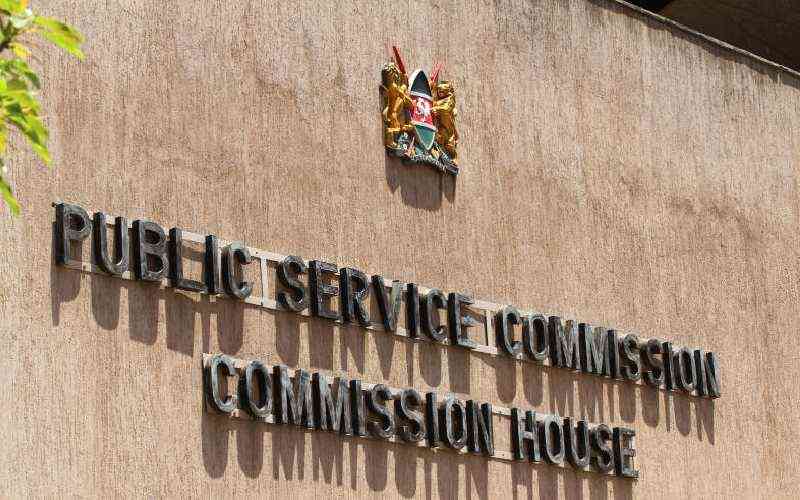Government jobs in Kenya are highly sought after due to their stability, benefits, and opportunities for career advancement. However, securing a position in the public sector requires meeting specific educational qualifications, which vary depending on the role and the level of responsibility. This guide provides an in-depth look at the educational qualifications required for various government jobs in Kenya, helping you understand what it takes to pursue a career in the public service.
Understanding the Structure of Government Jobs in Kenya
The government of Kenya offers a wide range of job opportunities across different sectors, including healthcare, education, security, finance, and administration. These jobs are categorized into various grades, with each grade requiring different levels of education, experience, and skills. Government jobs are typically classified into three main categories: entry-level positions, middle-level positions, and senior-level positions.
Each of these categories has its own set of educational requirements, which are often outlined in the job descriptions provided by the Public Service Commission (PSC) or other relevant government agencies. It’s important to understand these requirements before applying for any government position.
Minimum Educational Requirements for Entry-Level Positions
Entry-level government jobs in Kenya are typically accessible to individuals who have completed secondary education or hold a post-secondary diploma or certificate. The minimum qualification for most entry-level positions is a Kenya Certificate of Secondary Education (KCSE) with a minimum grade of C- (minus). However, specific positions may require higher grades or additional qualifications.
For example, clerical officers, who perform administrative tasks, generally need a KCSE certificate with a minimum grade of C- (minus) and a diploma in a relevant field such as business administration, secretarial studies, or human resource management. Other entry-level positions, such as support staff roles, may require only a KCSE certificate without additional post-secondary qualifications.
Diploma and Certificate Qualifications
Diplomas and certificates are crucial qualifications for many middle-level government jobs in Kenya. These qualifications are typically awarded by technical training institutions, polytechnics, and colleges after one to three years of study. Diploma holders are eligible for a wide range of government positions, including technical roles, administrative roles, and teaching positions.
For instance, a Diploma in Education qualifies an individual to apply for a position as a primary or secondary school teacher. Similarly, a Diploma in Nursing allows one to apply for nursing positions in government hospitals and health centers. In the civil service, diplomas in fields such as public administration, human resource management, or information technology are highly valued and open doors to various administrative and technical roles.
Bachelor’s Degree Requirements
A bachelor’s degree is often the minimum qualification for many professional and technical positions within the Kenyan government. Degrees are typically awarded by universities after a minimum of four years of study in a specific field. Government positions that require a bachelor’s degree include roles in education, healthcare, engineering, law, and finance.
For example, to become a secondary school teacher, one must hold a Bachelor of Education (B.Ed.) degree. Similarly, a Bachelor of Laws (LL.B.) degree is required to apply for legal positions such as State Counsel or Legal Officer in various government ministries and agencies. Engineering roles within the government require a Bachelor of Science (B.Sc.) degree in engineering, with specialization in fields such as civil, electrical, or mechanical engineering.
Master’s Degree and Postgraduate Qualifications
For senior-level and specialized government positions, a master’s degree or other postgraduate qualifications may be required. A master’s degree typically involves one to two years of study beyond a bachelor’s degree and provides advanced knowledge and skills in a specific area of expertise. These qualifications are essential for roles that involve high levels of responsibility, decision-making, and policy development.
Senior administrative positions, such as those of principal officers, directors, or commissioners, often require a master’s degree in fields such as public administration, business administration, economics, or law. In academia, a master’s degree is generally required for teaching positions at the tertiary level, such as in universities and colleges. Additionally, postgraduate qualifications such as Postgraduate Diplomas or Doctorate Degrees (Ph.D.) may be necessary for highly specialized roles or leadership positions in research institutions and government agencies.
Professional Certifications and Licensing
In addition to academic qualifications, many government jobs in Kenya require specific professional certifications and licenses. These certifications demonstrate that an individual has met the professional standards required to perform certain tasks or services. For example, accountants seeking government positions must be certified by the Institute of Certified Public Accountants of Kenya (ICPAK). Similarly, engineers must be registered with the Engineers Board of Kenya (EBK) to practice in their field.
Other professions that require certification include medical practitioners, architects, surveyors, and auditors. These certifications are often obtained after completing the necessary academic qualifications and passing professional exams. Licensing and certification ensure that government employees are competent and adhere to ethical standards in their respective fields.
Specialized Training Programs
The Kenyan government also offers specialized training programs for certain positions, particularly in the security sector. For instance, individuals interested in joining the Kenya Defence Forces (KDF), Kenya Police Service, or National Intelligence Service (NIS) must undergo rigorous training at designated academies. These programs focus on developing physical fitness, discipline, and specific skills required for security and defense roles.
In addition to military and police training, the government also provides specialized training for roles such as probation officers, prison wardens, and wildlife rangers. These training programs are designed to equip individuals with the knowledge and skills necessary to perform their duties effectively in challenging environments.
Continuous Professional Development
Continuous professional development (CPD) is crucial for career advancement in the Kenyan public sector. Government employees are encouraged to pursue further education and training to enhance their skills and knowledge. CPD can take the form of short courses, workshops, seminars, or advanced degrees, depending on the individual’s career goals and the requirements of their specific role.
Many government agencies offer scholarships, study leaves, or funding opportunities to support employees in their pursuit of further education. Engaging in CPD not only improves job performance but also increases the chances of promotion and career progression within the public service.
Application Process and Documentation
When applying for government jobs in Kenya, it is essential to provide the correct documentation to support your educational qualifications. This typically includes copies of your academic certificates, transcripts, professional certifications, and a detailed curriculum vitae (CV). Applicants must also submit a duly filled Public Service Commission (PSC) form, which is often available on the PSC website.
It’s important to ensure that all documents are certified copies, as uncertified documents may lead to disqualification from the recruitment process. Additionally, some positions may require the applicant to undergo a vetting process, which can include background checks, medical examinations, and interviews.
Challenges and Opportunities in Meeting Educational Requirements
While educational qualifications are crucial for securing government jobs in Kenya, meeting these requirements can be challenging for some individuals. Factors such as access to quality education, financial constraints, and regional disparities can affect one’s ability to obtain the necessary qualifications. However, the government has initiatives in place to address these challenges, including scholarship programs, affirmative action policies, and distance learning opportunities.
On the other hand, the increasing emphasis on education and qualifications in the public sector creates opportunities for individuals to pursue higher education and specialized training, leading to better job prospects and career growth. By understanding and meeting the educational requirements, aspiring public servants can position themselves for success in Kenya’s competitive job market.
Conclusion
Educational qualifications are a fundamental requirement for securing government jobs in Kenya. Whether you are aiming for an entry-level position or a senior role, understanding the specific educational and professional requirements is essential. By acquiring the necessary qualifications and continuously upgrading your skills, you can enhance your chances of building a successful career in the Kenyan public sector. With the right preparation and commitment, government jobs can offer a fulfilling and stable career path in service to the nation.





